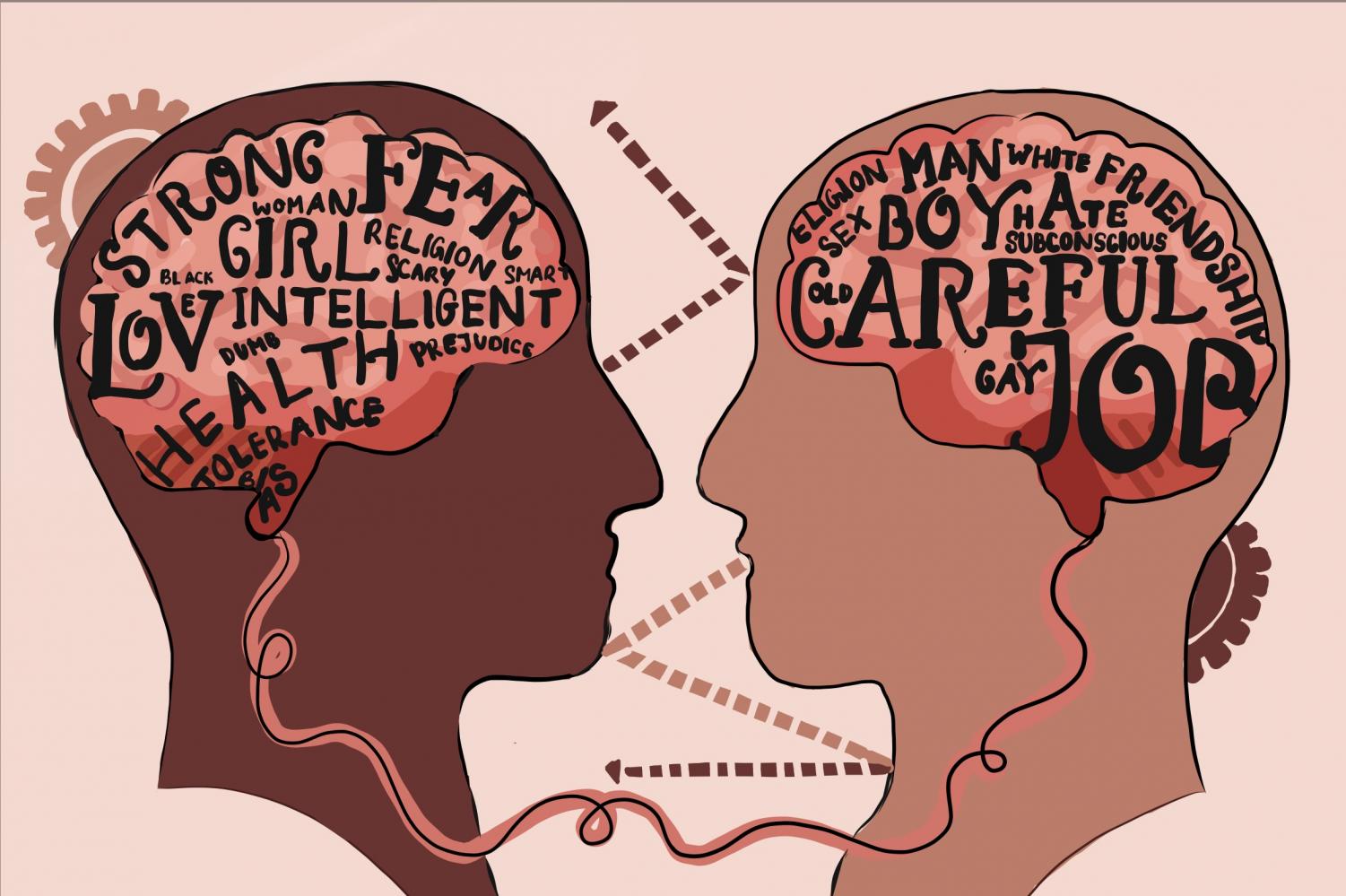Implicit bias proves destructive to modern society
March 19, 2021

As people, we like to think a lot. And we do so in nearly every aspect of our lives. Your brain, in fact, accounts for approximately 20 percent of total energy requirements, according to Scientific American. With this extensive thinking comes instinctual responses and preconceived notions.
Whether or not we’d like to admit it, we all are guilty of judging others in some way. That is not to say we don’t make the effort to avoid such judgments but it also is in human nature for us to assess something unfamiliar. This is, after all, an evolutionary adaptation we’ve developed to best avoid future instances that could result in potential danger or harm.
Nowadays, these preconceived notions, termed “implicit biases,” have been increasingly shaped by our surroundings, primarily the media. The repeated images of certain groups in film, shows and the news behaving in certain ways cause us to make unconscious assumptions when we interact with those people in real life.
We’ve developed several thoughts and beliefs on our own that have translated to a personal bias throughout our lives, ranging from childhood to adulthood.
Social scientists speculate that such generalizations develop in toddlers as early as the age of three, according to Learning for Justice, where they pick up on prejudiced terms without understanding the weight of such words. Soon, they begin “to form attachments and develop negative attitudes” towards a particular group, according to Learning for Justice.
The Perception Institute defines thoughts and feelings to be implicit when we, the thinkers, are unaware of them or are mistaken about their nature. We have a bias when, rather than being neutral, we have a preference for or a disliking towards a person or group of people.
Even in films, we see stereotypes associated with different age groups or genders, as Learning for Justice highlights. An elderly man might be portrayed as more frail, forgetful and vulnerable, while a youthful woman might hold a more vibrant and able nature about her. Such simple associations with a group further encourage individuals to unknowingly hold stereotypes of others.
Socialization and in-group attitudes by the culture at large further allow for such biases to perpetuate. For instance, seeing the dominance of one religion, one gender, one ethnicity or one overall lifestyle can result in “outsiders” straying from their own lifestyle to better fit such societal standards.
It’s thus clear that implicit bias is a universal phenomenon, not limited by gender or country of origin. While several aspects of it will forever remain present throughout our world, continuous efforts are being made to better understand and assess it.
Media and culture influencers have a role to play by ceasing to perpetuate stereotypes in news and popular culture, yet individuals should work towards identifying where implicit biases may affect our behaviors and judgments. Encouraging a sense of mindfulness on implicit bias can thus eliminate the tendency to act on behalf of such biases that are contrary to our conscious values and beliefs.


